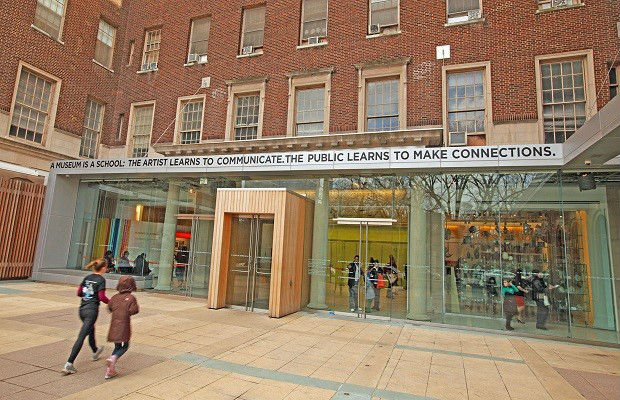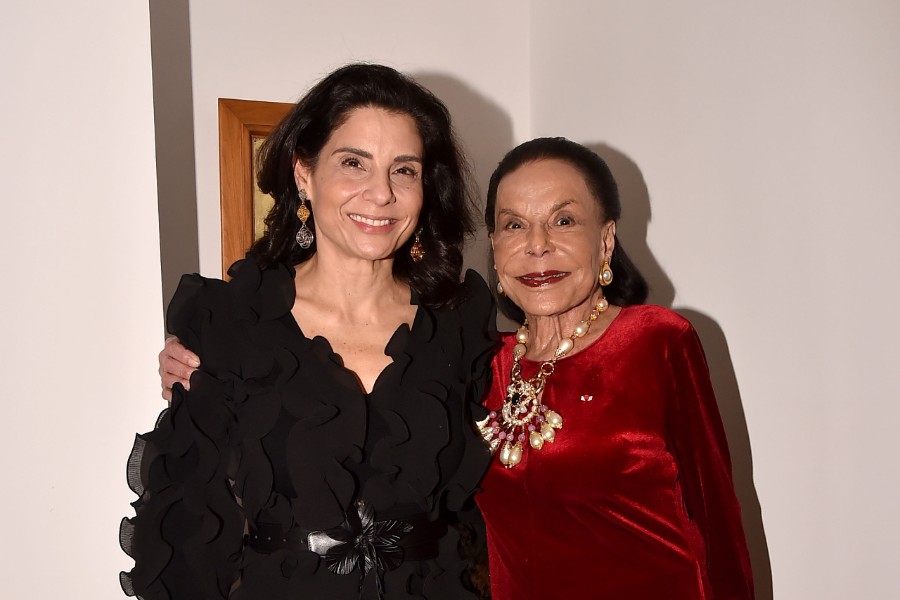 As part its emergency grantmaking in the face of the global COVID-19 crisis, The Andrew W. Mellon Foundation announced today the launch of a new Art Museum Futures Fund.
As part its emergency grantmaking in the face of the global COVID-19 crisis, The Andrew W. Mellon Foundation announced today the launch of a new Art Museum Futures Fund.
The fund is an emergency grant program starting with nearly $24 million to be distributed to 12 mid-sized art museums across the nation.
With the pandemic raging across America, arts and cultural institutions are particularly vulnerable to the extraordinary financial fallout and face potentially permanent closures as a result. This new emergency grant from the Mellon Foundation is aimed squarely at supporting those organizations with immediate funding as they adapt to unprecedented financial obstacles posed by this worldwide health crisis. With awards ranging from $600,000 to $5.5 million, the Art Museum Futures Fund will enable institution leaders to stabilize their organizations while preparing for reopenings.
In early fall, Mellon will issue additional support of up to $3 million for small art museums across the country who often have limited access to capital as part of the Art Museum Futures Fund’s next wave of grantmaking, which can be used to support expenses associated with COVID response, resiliency planning, or general operating support for critical staff and infrastructure.
“Cultural organizations like these small and midsized art museums are essential to the vibrancy of their communities and they are experiencing unprecedented financial vulnerability as a result of the pandemic,” said Mellon Foundation President Elizabeth Alexander. “We are determined to safeguard these institutions at this time of national crisis, and we believe firmly in their mission to protect and preserve the visionary voices and transformative histories of their communities. Mellon’s Art Museum Futures Fund is vital to ensuring our country’s artistic and cultural landscape remains prolific after the pandemic passes.”
“These institutions care for diverse and distinctive art collections. We are committed to lifting this work.”
“Despite relatively small budgets, lean staffs, and minimal endowments, these institutions often punch above their weight,” said Mellon Foundation Program Officer Deborah Cullen-Morales. “These institutions care for diverse and distinctive art collections. We are committed to lifting this work.”
Each grantee in the first round of the Art Museum Futures Fund serves as a crucial steward of their distinguished collections, demonstrates an exceptional commitment to local communities, and regularly offers programming that engages with the richness and complexity of the American experience. The Asian Art Museum (San Francisco), Brooklyn Museum (NYC), El Museo del Barrio (NYC), Institute of Contemporary Art (Boston), McNay Art Museum (San Antonio), Museum of Contemporary Art (Chicago), Nevada Museum of Art (Reno), Oakland Museum of California, (Oakland), Pérez Art Museum (Miami), Philbrook Museum of Art (Tulsa), Queens Museum (NYC), and The Studio Museum in Harlem (NYC) have been named as recipients of AMFF’s initial grantmaking.
The American Alliance of Museums (AAM) estimates that museums in the US are collectively losing at least $33 million per day because of COVID-19 related closures and that nearly 30 percent of museums will not reopen without significant emergency assistance. Losses of that magnitude will have a sweeping effect on the arts and culture landscape across the nation.
The COVID-19 crisis has created unprecedented financial obstacles for the arts. The American Alliance of Museums (AAM) estimates that museums in the US are collectively losing at least $33 million per day because of COVID-19 related closures and that nearly 30 percent of museums will not reopen without significant emergency assistance. Losses of that magnitude will have a sweeping effect on the arts and culture landscape across the nation.
Studies have shown that midsized art museums held, on average, less than two months working capital precrisis, lacked strong banker relations, and thus are susceptible to insolvency. Nonetheless, their wealth in local social capital and repeat neighborhood visitors give them the unique ability to serve their communities.
Because these institutions operate with limited resources in times of economic prosperity, cuts to programming and staff enacted in response to COVID-19 pandemic closures will have lasting consequences on their ability to serve their communities. Studies have shown that midsized art museums held, on average, less than two months working capital precrisis, lacked strong banker relations, and thus are susceptible to insolvency. Nonetheless, their wealth in local social capital and repeat neighborhood visitors give them the unique ability to serve their communities.
The Foundation continues to make direct grants to museums as part of its regular grantmaking cycle.
The Andrew W. Mellon Foundation is the nation’s largest supporter of the arts and humanities. Since 1969, the Foundation has been guided by its core belief that the humanities and arts are essential to human understanding. The Foundation believes that the arts and humanities are where we express our complex humanity, and that everyone deserves the beauty, transcendence, and freedom that can be found there. Through our grants, we seek to build just communities enriched by meaning and empowered by critical thinking, where ideas and imagination can thrive.
Become a Harlem Insider!
By submitting this form, you are consenting to receive marketing emails from: . You can revoke your consent to receive emails at any time by using the SafeUnsubscribe® link, found at the bottom of every email. Emails are serviced by Constant Contact








